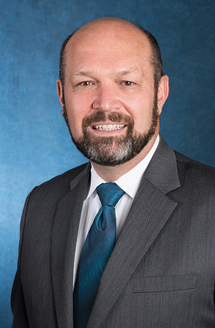September 2017—Academic Pathology recently published the results of a two-year project by the CAP Graduate Medical Education Committee to build a framework for teaching specific entrustable professional activities (EPAs) in pathology. Their scheme structures a competency-based approach to training mapped to the ACGME Milestones for pathology resident evaluation. Competency-based curricula are well suited to impart the breadth and depth of necessary fundamental knowledge to future pathologists.

Richard C. Friedberg, MD, PhD
Despite the excellence of our educators and the activist approach they take to their role, we are falling short in recruiting medical students into pathology. The array of knowledge and skills required make for a highly satisfying career, especially for those who are drawn to a field specifically because of the challenge. Yet, as science lurches and tumbles forward, many medical students may find the in-training workload to be daunting.
Many of us came to pathology indirectly; often, a summer job or time in other medical disciplines whet our appetites. On the other hand, once ensconced in the specialty, relatively few leave. We enjoy the opportunities to learn and investigate every day, to wear a variety of hats, to translate science into medicine. Pathologists in every stage of training and practice are the future of diagnostic medicine, combining the mindset of a physician with the perspective of a scientist.
The minimal exposure to hands-on pathology in modern medical school curricula has compromised our ability to attract students via typical recruitment tracks. No one is drawn to what they do not know or see, and relatively few outside our field understand what we do. Each of us has a responsibility to look and listen for signs of both interest and confusion, to make a conscious effort to explain ourselves in familiar terms. If we are to deliver the good we are capable of doing, we must become better known. The complexity of our work may be intimidating to the uninitiated; that’s not good for anybody. Whether via hospital committees, community leadership, or educational programs for our work-based hospital staff and home-based neighbors, we must introduce ourselves again and again.
Here’s an idea. CAP17 is but a few weeks away. This will be a week full of opportunities to glimpse a brave new world where science informs and medical progress moves forward in response. Walking through the halls will be pathologists clustered in small groups, renewing professional friendships and sharing their learnings. The scientific plenary will have renowned experts detailing the “hows” and “whys” of new gene editing technologies and the mind-boggling ethical questions they introduce. There are also plenty of other topics of great interest to anyone engaged by the biological sciences, including students with little idea of the full spectrum of areas of inquiry open to pathologists. Back at home, our laboratory staff share many of our interests, and their friends and family likely do, too. After CAP17, consider ordering a pizza and sitting down with your teams to share what you have learned. Remind them that amazing things happen in the laboratory every day. Encourage them to talk about those things at home. This is how careers germinate.
Each of us has a responsibility to encourage young people to think about what is important to them and speak up for it. I was thinking about that a few months ago, when I came across a new book by Thomas E. Ricks, Churchill and Orwell: The Fight for Freedom. Ricks examines the lives of two very different individuals who are rather oddly paired contemporaries with diametrically opposed ideologies. Winston Churchill (1874–1965) was a conservative member of Great Britain’s Parliament who persistently warned about Hitler’s aggression when the country’s leadership was pursuing a policy of appeasement. George Orwell (1903–1950) was a leftist journalist with an elite background whose postwar novels (1984 and Animal Farm) would present an equally prescient and unflinching view of totalitarianism. Both recognized the urgent need for evidence-based, robust discussion of the dilemmas of their time, and both spoke up.
When his predictions proved true and he was elected prime minister, Churchill mustered the courage of a battered populace with brutally honest, soaring oratory. He warned of the worst and insisted they were up to the challenge. Under relentless aerial bombardment, the people of Great Britain rose to support a beleaguered military because they heard truth in Churchill’s eloquent bluster. And, despite their political differences, Orwell wrote approvingly, “For the first time in decades, we have a government with imagination.”
Like Churchill and Orwell, we live in a time of great disruption. Like them, we have a duty to speak to a collective challenge. Pathology draws physicians with an affinity for science, the perspective to grasp its breadth, and a stubborn need for quality. We know that diagnostic medicine both triggers and continually redirects the care of our patients. We know that our ability to reach out and speak up for the best interests of our specialty and our patients will not be compromised by a lack of imagination.
Soon, president-elect Bruce Williams, MD, will take my place. It has been an honor to represent you these past two years, and I have enjoyed working with a team of inspiring member leaders. I have every confidence in Dr. Williams: He knows how to listen and how to lead. Our absolutely top-notch staff and their professional energy are guided skillfully by Stephen Myers, our new CEO. Our books are balanced, our creativity is ascendant, and our interests run broad and deep. We can have a brighter, steadier profile for pathology in our practice settings and communities. To that end, we will continue to explain what we do, encourage interest in our science, and protect what has been entrusted to us.
 CAP TODAY Pathology/Laboratory Medicine/Laboratory Management
CAP TODAY Pathology/Laboratory Medicine/Laboratory Management
